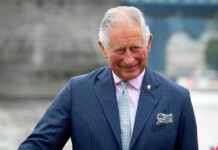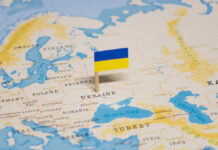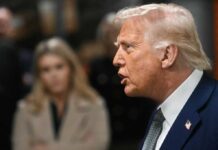
The Kremlin’s unexpected diplomatic maneuver with the Taliban signals a provocative shift, leaving many to question its future impact on regional politics.
At a Glance
- Russia removed the Taliban from its terrorist list, enabling potential economic agreements with Afghanistan and Syria.
- The Supreme Court temporarily lifted the ban on the Taliban, following a decree by President Putin.
- The Taliban can now appoint an ambassador to Moscow, reflecting strengthened ties.
- Russia views Taliban relations as a counter to Western influence and US policy failures.
Russia’s Diplomatic Reorientation
Russian authorities have daringly removed the Taliban from their list of terrorist organizations, facilitating a gateway to more formalized relations. This development comes on the heels of unofficial communication channels initially established in 2015. Amidst a request from the prosecutor general and a subsequent decree by President Putin, the Supreme Court of the Russian Federation temporarily lifted the ban, which smooths the way for potential economic agreements with Afghanistan. Historically, Russia had required the arrest of Taliban members on Russian soil post-designation in 2003. Yet, no detentions have occurred since 2016.
The move to accept a Taliban ambassador signifies a diplomatic upgrade, though it doesn’t equate to acknowledging Afghanistan’s government as legitimate—a stance the global arena generally concurs with. Since the Taliban ascended to power in Afghanistan in 2021, Russia has consistently engaged through talks with the nation’s foreign and internal ministers, highlighting a strategic pivot to secure regional cooperation and counterbalance souring Western relations. The Afghan side has expressed their deep gratitude for this step, indicative of their eagerness to normalize international standings.
Historical Context and Shifting Alliances
Historically, the Taliban backed Chechen fighters against Russia, an alliance born from a mutual adversary during the Second Chechen War. Following the 9/11 attacks, the Taliban was designated a terrorist organization by Russia in 2003. However, Russian President Vladimir Putin’s recent address, referring to the Taliban as “allies in the fight against terrorism,” illustrates just how dramatically these narratives can evolve when political winds shift. Despite this, international skepticism about the Taliban remains, primarily due to their unenviable human rights record, particularly concerning women and girls in Afghanistan.
“They have only gained indirect recognition so far. China, for example, has agreed to accept the Taliban-appointed ambassador, whereas Russia has only accepted a temporary chargé d’affaires.” – Ruslan Suleymanov
This recalibrated Russian approach seems to revel in demonstrating perceived US foreign policy failures while green-lighting advances for economic cooperation. Potential agreements, including contracts for oil products, wheat, and flour, underscore the pragmatic takes these former enemies now indulge in. Meanwhile, the Taliban’s attendance at Russian high-profile events marks another telling sign of these developing dynamics.
Practical Implications and Controversies
While this suspension does not cement full recognition, it significantly alters Afghanistan’s diplomatic standing in Moscow. According to Russian Foreign Minister Sergei Lavrov, dealing with “the new authorities in Kabul is a reality” that requires embracing a pragmatic policy, though Russia and other countries have not formally recognized the Taliban as Afghanistan’s governing body. However, the fact that Russia’s progress in normalizing these governmental relationships is partly a response to worsening Western ties, adds a thick layer of irony.
“The representatives of the Afghan leadership were informed that, following the decision announced by the Supreme Court of Russia to suspend the ban on the Taliban movement, the Russian side has decided to upgrade the diplomatic mission of Afghanistan in Moscow to the level of ambassador” – Russian foreign ministry
As Russia avidly pursues these ties with the Taliban, skirting a full endorsement while silently rebuffing US policy, skeptical observers can’t help but recall the colorful paradoxes of geopolitics. Yet while the Taliban might now walk without immediate threat of arrest in Russia, the diplomatic pas de deux continues to unfold in intricate steps that leave much of the world watching with a mix of intrigue and apprehension.





























